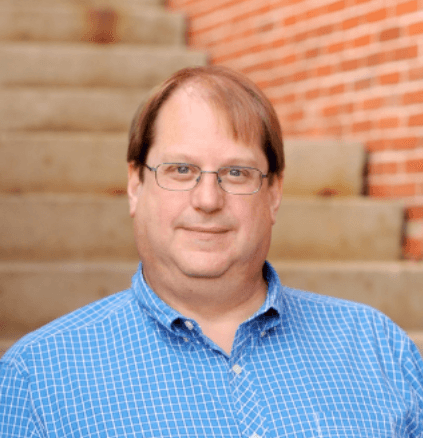Thursday Thoughts: with Brian Robertson, PhD
For this installment of our Thursday Thoughts series, we talk about how the survey world has been affected by COVID-19 with Dr. Brian Robertson of Market Decisions Research.

Brian, who is the Vice President of Research, provides technical leadership for all Market Decisions Research projects, including research design, survey structure, sampling methodologies, data collection methods, and analysis. He assures that data collected is truly representative of the population of interest, advanced tools are used to get the most from the data, and that data presented is clear and actionable. His work most often addresses health care and public policy issues. Brian has managed over 20 health insurance surveys across nine states and led population health studies in five states, helping to collect vital data from hundreds of thousands of Americans. Market Decisions Research houses a team of quantitative and qualitative research experts, experienced in with conducting research with intricately designed survey instruments, weighted samples, hard-to-reach populations, and the most advanced analytical techniques.
Jessie Hole: What’s surprised you the most in the past few months?
Brian Robertson: I am a person that needs structure and have traditionally always worked from the office. I’m surprised that I and society have been able to transition and adapt to a new norm so quickly. Oddly enough, working from home seems to have quite a few advantages!
JH: What have you learned about doing your work better and/or faster that should be preserved?
BR: Our company has managed to take how we operate, maintain it, and in some ways move faster. We can’t knock on each other’s doors anymore, but we can still connect using Microsoft Teams. There were some technical challenges to transitioning our interviewers to a remote model, but we were able to make it happen. Working remotely has actually increased our capacity. It’s given folks a way to work when they otherwise won’t have been able to (i.e. due to childcare challenges or fear of exposure to COVID). Folks get time back because they no long have to commute. I think we will continue with a hybrid model in the future. We haven’t seen a downturn in data quality but have seen an uptick in productivity.
JH: What’s been the most helpful resource in your work in the past 3 months?
BR: All of the data and information shared on the American Association for Public Opinion Research (APPOR) wesite. Everyone who is a member can post and answer questions. This is a community of over 3000 survey researchers – I can have the ‘greats’ of the field answer my questions! We’re able to learn from each other and adapt how we work, together. APPOR also sends out a weekly email that’s helped us to monitor the spread and impact of COVID-19; they include surveys templates as well as data that’s been collected on metrics such as self-reported compliance with mask recommendations and mental health outcomes.
JH: How has the survey world changed over the past few months?
BR: We are learning how to adapt traditional methods of data collection to the new norm – for example, how the heck do you conduct focus groups when you can’t all meet in-person? Its been really helpful to crowdsource solutions, tools, and advice from other people in the industry. Recently, we conducted a series of digital focus groups with kids around tobacco use. Luckily, we got some good tips on how to effectively manage folks over Zoom beforehand!
JH: What should we be measuring 6 months from now?
BR: Some of the same metrics that we’ve been measuring in recent years: Are people having problems getting the care they need? Are people experiencing mental health issues? Survey data is a great way to monitor longitudinal trends. We can monitor the short and longer-term impacts of COVID-19 by continuing to ask these questions over time. Health disparity data will also be especially vital to study. Maine currently does a really good job of tracking this – one statistic that really stuck out to me was that black folks account for about 2% of the state’s population, but account for about 30% of COVID cases.
JH: You’re organizing a socially distanced dinner party in this time of COVID, which three people (dead or alive) would you invite?
BR: The first person who comes to mind is Sir William Flinders Petrie, the father of modern archaeology. If not for him, I would not have been able to write my dissertation – he kept the most meticulous notes! Other than him, I would want to share a table with Don Dillman, whose not quite the ‘father’ of survey research but wrote the foremost textbook on it, and Albert Einstein. I was a chemical engineering major before turning to archeology, then survey research. It wasn’t quite the field for me, but I really like quantum mechanics.
Are you interested in learning about disrupted data models and changed data governance processes, suburban migration, remote working, and Ani DiFranco? Check out our previous Thursday Thoughts interview with Amy Hawn Nelson, PhD, of AISP here or email us at [email protected]
